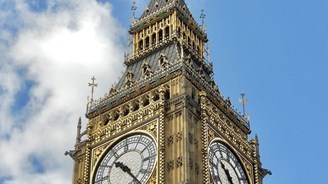Autumn Statement Predictions: Will We See a Return to Austerity?

Chancellor Jeremy Hunt has warned of the need to make difficult decisions in the upcoming Autumn Statement. The Chancellor’s choices are being restricted by the state of the public finances. Here, we take a look at the fiscal situation and examine some of the options open to Mr Hunt on 22 November.
State borrowing billions over predictions
The Chancellor’s warning came after recent news that there has been a ‘sharp worsening’ of the public finances over the past six months.
Mr Hunt said state borrowing was on course to be £20 billion to £30 billion higher than predicted at the March Budget.
The Chancellor said:
The fiscal position has worsened since the spring, and I will have to take difficult decisions in the Autumn Statement.
The main reason things are more challenging is because interest rate projections for all economies have gone up. The UK is not immune to those changes. We are likely to see an increase in debt interest payments of £20 billion to £30 billion and that’s a huge challenge.
At the time of the March Budget, the Office for Budget Responsibility (OBR) said the chancellor had only a £6.5 billion buffer to meet his fiscal rule of having debt as a share of national income falling at the end of five years. Higher borrowing in response to the Covid-19 pandemic has pushed the national debt above £2 trillion.
No short cuts
The government is now expecting the OBR to cut its future growth forecasts for the UK economy, which would pile additional pressure on the public finances.
However, Mr Hunt says he is not prepared to borrow more to finance the tax cuts being demanded by some Conservative MPs. Instead he says he will make savings to pave the way for a more generous Budget next spring as the next general election draws closer.
The Chancellor said:
I will do everything I can to prevent tax rises and also show how I can reduce the tax burden over time. But I have to be honest – there are no short cuts. Borrowing to finance tax cuts is no tax cut at all. It just passes on the cost to a future generation.
All western economies have found themselves in a low-growth trap. The Autumn Statement will show how we can get out of it.
‘Horrible bind’
The precarious state of the public finances and the Chancellor’s lack of room for manoeuvre were both underlined by recent analysis published by the Institute for Fiscal Studies (IFS).
The IFS has warned that there is ‘no room’ for tax cuts or spending increases before an election. In fact, the UK is ‘in a horrible fiscal bind’, according to the IFS’s annual health check of the nation’s tax, spending and borrowing.
The Institute warns that pre-election tax cuts could prove ‘unsustainable’ and ‘ultimately mean a protracted recession’ as interest rates are forced even higher.
The warning comes despite the UK’s tax burden rising significantly, with 4.5 million more people set to be dragged into higher income tax thresholds by 2028, according to the IFS.
The IFS calculates that the tax revenue raised by the Prime Minister's decision to freeze tax thresholds for six years is effectively a rise worth £52 billion a year by 2028.
Paul Johnson, Director of the IFS, said:
With taxes at record levels and government revenues forecast to exceed non-interest spending for the first time in a generation, you might expect plenty of room for either tax cuts or spending increases.
The price of our high levels of indebtedness, failure to stimulate growth and high borrowing costs is likely to be a protracted period of high taxes and tight spending.
Benefits sanctions regime
The Chancellor’s speech at the recent Conservative Party conference gave some clues as to what we might expect in the Autumn Statement.
As well as confirming that the National Living Wage (NLW) is set to increase to at least £11 an hour from next April, Mr Hunt pledged to review the benefits sanctions regime.
He said ministers will look at the regime to enforce the requirements to seek work that applies to certain benefits. According to the Chancellor, things ‘have being going in the wrong direction’ since the pandemic, with around 100,000 people leaving the labour force every year ‘for a life on benefits’.
He did not announce any details of the new approach; however, plans are due to be set out at the Autumn Statement. Part of that approach could include changes to training, apprenticeships and other pathways into work.
The Autumn Statement
Whatever happens on 22 November, Mercia’s tax experts will be watching and will provide detailed analysis of the government’s fiscal announcements. Keep your clients up to date with our range of digital products.




